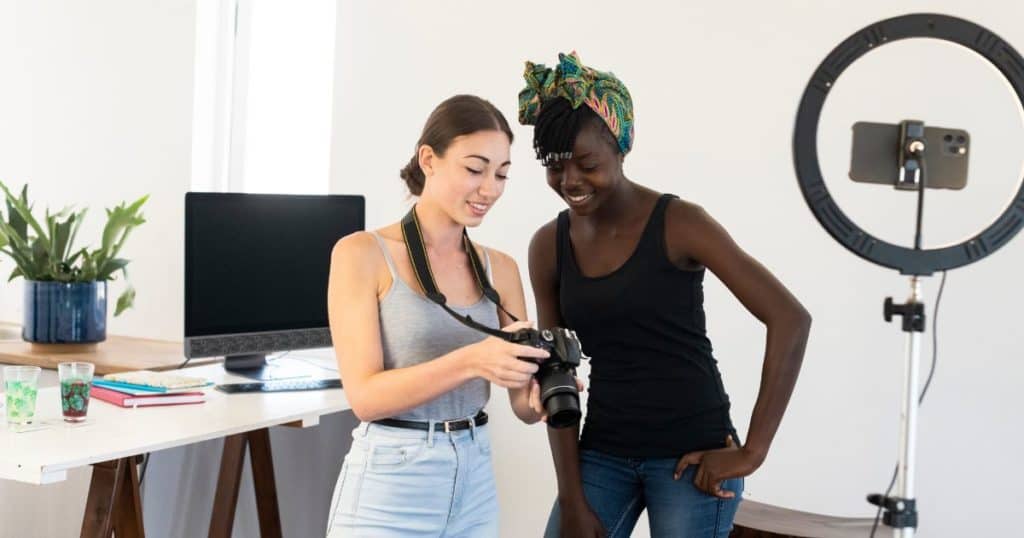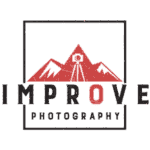Starting a photography business is an exciting prospect for many people. However, the process of turning your passion for photography into a successful business requires a lot of planning, hard work, and dedication. Fortunately, with the right guidance and information, you can start your own photography business and build it into a big brand.
In this guide, I’ll provide you with all the information you need to know on how to start your own photography business. Let’s get started.
What to Know Before Starting Your Own Photography Business

While photography is a great business, it has become competitive over the past few years. So, it’s important to be prepared for what lies ahead before starting.
Here are some things to know before starting your own photography business.
Photography Skills
For any photographer, your skills and abilities are the foundation of your business. Before starting your own photography business, it's essential to have a strong understanding of the technical and creative aspects of photography.
Having a good understanding of lighting is crucial as it allows you to create different moods and atmospheres in your photographs. You should also understand the rules of composition and how to use them to create visually pleasing and dynamic images.
Equipment and Accessories
If you want to create a successful business, you need to have the right photography equipment. Investing in professional-grade equipment will help you to produce high-quality images and stand out in the competitive photography market.
Some of the most important equipment you need are a camera, lenses, lighting equipment, a tripod stand, and editing software.
Business Knowledge
Starting any business requires a certain level of knowledge in areas like accounting, marketing, and legal matters. As a photographer, you may be skilled in capturing beautiful images, but it's also important to have a basic understanding of the business side of things.
Find a Niche
When starting a photography business, it’s important to consider what niche you want to focus on. Choosing a niche allows you to focus your efforts and become an expert in that area of photography. It also makes it easier for you to market your business and attract clients who are looking for a specific type of photography.
How to Start Your Own Photography Business
Just like any other business, photography requires you to invest time and money for success. From purchasing equipment and registering your business, to building your portfolio and marketing your services, there are several steps that you’ll need to take.
Luckily, starting a photography business is not as hard as some people think. To help you navigate the process, I’ve provided a step-by-step guide on how to start your own photography business so you can turn your passion for photography into a profitable business.
Develop a Business Plan
Developing a business plan is a crucial step when starting your own photography business. It serves as a roadmap, outlining your goals, target market, and strategies for generating revenue.
Here are key elements to include in your business plan:
Executive Summary: This is a brief overview of your business, including your goals, target market, and how you plan to generate revenue. It should be clear and concise.
Market Analysis: This section includes research on your target market, including demographics, needs, and buying habits. It should also include an analysis of your competition and how you plan to make your business stand out.
Products and Services: In this section, describe the products and services you plan to offer, including pricing and packaging options.
Sales and Marketing: Detail your sales and marketing strategies, including how you plan to reach your target market, what channels you will use to promote your business, and your marketing budget.
Operations: This section should describe how your business will operate, including your business structure, location, and staffing needs.
Financial Projections: Here you should include financial projections for the next three to five years, including projected income and expenses, cash flow projections, and break-even analysis.
Conclusion: Summarize the key points of your business plan and reiterate your goals and strategies for success.
Determine Your Business Structure
Decide how you want to structure your business. You can choose to be a sole proprietor, partnership, LLC (Limited Liability Company), or corporation. Each structure has its benefits and drawbacks, so it’s important to choose the one that works best for you.
Also, consider the level of personal liability you are comfortable with, the amount of paperwork and formalities you are willing to handle, and the potential for future growth and expansion. You may consult with a legal professional or an accountant before making a decision.
Register Your Photography Business
Once you’ve chosen your business structure, you’ll need to register it with your state. This process will vary depending on your state and the type of structure you have chosen. Registration often requires information such as the business name, address, and contact information.
You’ll also need to obtain any necessary permits and licenses. For example, if you plan to shoot wedding photos, you may need to obtain a wedding photography permit. Similarly, photography services in a public park may require a permit from the park.
Build Your Business Website
Most successful photographers have a website that showcases their portfolio, prices, and contact information. This is often the first impression potential clients have of your business, so it’s important to invest in a professional and well-designed website.
If you don’t know how to code a website from scratch, use a content management system (CMS) like WordPress, Squarespace, or Wix, which provide templates and drag-and-drop options that make it easy to create a professional-looking website.
Aside from important pages like contact, about, services, portfolio, etc., your website should also have a blog to increase the chance of being found by search engines. It allows you to share your thoughts and experiences as a photographer.
With the right design, portfolio, and SEO, your website will be a valuable tool for attracting new clients and growing your photography business.
Network with Other Photographers
By connecting with other professional photographers, you’ll be setting your business up for future success. A good network helps you find new work opportunities and helps you stay informed about industry trends and changes.
To build a solid network, join photography groups and organizations, attend events and workshops, connect on social media, and collaborate on projects with other photography business owners.
Market Your Business
Once you’ve set up your business, you’ll need to market it to potential customers. There are a variety of ways to market your business, and it’s important to find the methods that work best for you.
Social media platforms such as Instagram, Facebook, and Twitter are great ways to showcase your work and connect with people. Post high-quality images, engage with your followers, and use hashtags to help increase your visibility and reach.
Invest in advertising to reach a larger audience and attract prospective clients. This can include print ads in local publications, online ads, and sponsored posts on social media.
Other methods you can try are referral marketing, email marketing, SEO, printed marketing materials, and special offers and discounts.
The Costs of Starting a Photography Business

The startup costs of a photography business vary depending on the type of photography and equipment. Some equipment can cost as much as $5,000, so you may want to go for used ones if your business isn’t making any money yet.
Here are some expected costs to prepare for:
Equipment costs: You’ll need at least two cameras to take high-quality photos and meet the demand of your clients. You may want to budget between $3,000 and $3,500 for both cameras.
Lenses and flashes can cost more than $1,000 and $700 respectively. Budget for more than $50 for each memory card. Photo editing software like Lightroom and Photoshop typically costs around $120 per year.
Business license and registration costs: These costs also vary depending on your state and your type of photography. However, be prepared to spend at least $150 to get the necessary documents.
Website costs: You can save website design costs by using Wix, PhotoShelter, SmugMug, WordPress, Squarespace, etc. Any of these options should cost you less than $100 to set up.
Insurance costs: Obtain liability insurance to protect yourself and your business in case of any accidents or mishaps during a photoshoot. The cost of insurance will vary but you can expect around $600 per year.
Marketing and advertising: Building an audience on social media is a cost-effective way to promote your photography business and attract new clients. The cost of paid advertising varies depending on the company and the audience you want to reach.
Other things to keep in mind include office and studio space, camera bags, an online proof gallery, business cards, photography workshops, and business training costs. It may also be worth investing in accounting software to keep track of your ongoing costs and expenses.
Conclusion
Now you know how to start your own photography business and take your creativity and skills to the next level. With a solid business plan, the right equipment, a marketing plan, and a strong network, you can turn your passion into a successful and profitable venture.
Remember to stay organized and keep track of your finances, and don't be afraid to ask for help or advice when you need to.
